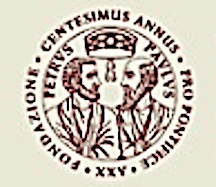Address of the Holy Father Francis to the participants of the
“centesimus annus – pro pontifice” (CAPP for short)
The name commemorates the 100th year after Rerum Novarum’)
Clementine Hall – Saturday, 8 October 2022
Employers should never look down on anyone- except to raise them up!
Dear brothers and sisters,
The theme of your Conference in these days was “Inclusive Growth to eradicate poverty and promote sustainable development for peace”. It seems to me that the key expression is the initial one: “inclusive growth”. It makes us think of the Populorum Progressio of St. Paul VI, where he states: “Development is not reduced to simple economic growth. To be authentic development, it must be integral, which means aimed at the promotion of every man and the whole man” (n. 14). Therefore, development is either inclusive or it is not development. And so, here is our task, especially yours as lay faithful: to “rise” economic reality in an ethical sense, growth in the sense of development. And you seek to do so, starting from the vision of the Gospel. Because everything comes from how you look at reality.
In one of his novels, a contemporary American narrator speaks of the time before the stock market crash and writes: “Within the various states the Depression was already making itself felt, and the farmers and laborers a little everywhere were in a state of alarm. We met a lot of desperate people on the street, and Master Yehudi taught me never to look down on anyone” (Paul Auster, Mr Vertigo, Turin 2015, 126).
Everything comes from how you look, and where you look. Looking at another from top to bottom, it is permissible to do so only in one situation: to help him rise up. No more. This is the only legitimate time to look down on someone. Jesus’ gaze could see in the poor people who put two pennies in the box of offerings in the Temple a gesture of total gift (cf. Mk 12:41-44). Jesus’ gaze began with mercy and compassion for the poor and the excluded. Where does my gaze start? A question that will always help us.
Inclusive growth finds its starting point in a non-self-withdrawn gaze, free from the search for profit maximization. Poverty is not fought with welfarism, no, so it is “anesthetized” but it is not fought. As I said in Laudato Si’, “helping the poor with money must always be a temporary remedy to cope with emergencies. The real objective should be to enable them to live a dignified life through work” (n. 128). The door is work: the door to a man’s dignity is work.
Without a commitment of all to grow labor policies for the most fragile, a world culture of waste is fostered. I also tried to explain this conviction in the first chapter of the Encyclical Fratelli tutti, where, among other things, it is recalled that “wealth has increased, but without equity, and so it happens that new forms of poverty are born” (n. 21). Wealth grows and new forms of poverty are born.
This is why the future invokes a new gaze, and each one in his own small way is called to be the promoter of this different way of looking at the world, starting from the people and situations he lives in everyday life. Master Yehudi, in the novel I quoted, teaches his pupil to “never look down on anyone”; I think this can be a good indication for everyone. We are all brothers and sisters, and if I am the owner of a company, this does not legitimize me to look at my employees with an air of sufficiency. If I am the CEO of a bank, I must not forget that every person must be treated with respect and care.
The Centesimus Annus Foundation can decline the important reflections conducted in these days, through the conversion of the gaze of each one. The humble gaze of those who see in every man and woman who meets a brother and sister to be respected in his dignity, before possibly a customer with whom to do business. He is a brother, a sister, a person; can make the customer. Only with this gaze will we be able to fight against the evils of current speculation that feeds the winds of war. Never looking down on anyone is the style of every peacemaker. It is permissible to do this only to help lift up.
Dear friends, I thank you for coming, and above all for the commitment that each of you places, where you live and work, in order to promote inclusive growth and, more generally, knowledge of the Church’s social doctrine. I cordially bless all of you and your families. And please, do not forget to pray for me. Thank you.
Footnote:
The event that spawned the idea of creating the Foundation “Centesimus Annus – Pro Pontifice” was the publication of Pope John Paul II’s Encyclical “Centesimus Annus” on May 1st, 1991, the 100th anniversary of Pope Leo XIII’s Encyclical “Rerum Novarum”. Rerum novarum is an encyclical issued by Pope Leo XIII on 15 May 1891 that addressed the condition of the working classes. One hundred years later, Pope John Paul II felt the need to give voice to his own thoughts on social issues and articulate his vision, which places the human being at the center of all economic activities.
A meditated reading of “Centesimus Annus” prompted some enlightened people to action, urging qualified Catholic business and financial leaders to join forces, help diffuse the basic principles of the Social Doctrine of the Church expounded in the Encyclical and at the same time look for new sources of funding for the activities of the Holy See, which must respond to the ever increasing needs of the whole Church, or rather of the whole mankind.
Under the guidance of His Eminence Rosalio Cardinal Castillo Lara and Archbishop Giovanni Lajolo, some businessmen and bankers began looking for endorsements. The idea took form and gradually developed into a series of person to person and group meetings. The response was very encouraging and Cardinal Castillo Lara, having duly informed the Secretariat of State, submitted his project to the Holy Father. CAPP was established by Pope John Paul II on June 5th, 1993.


